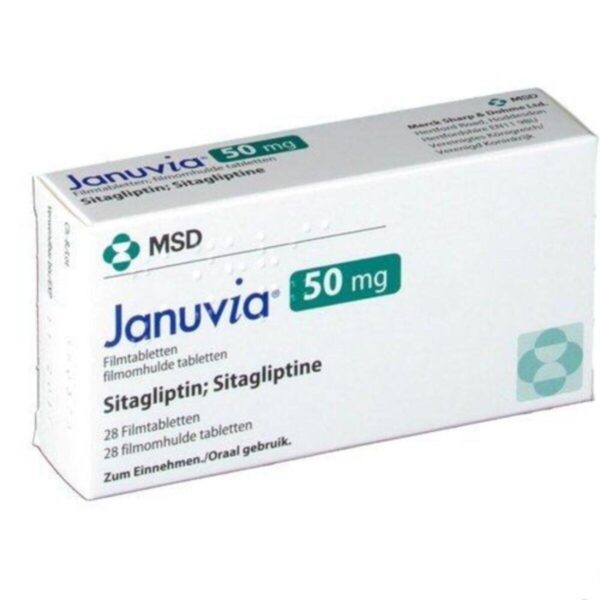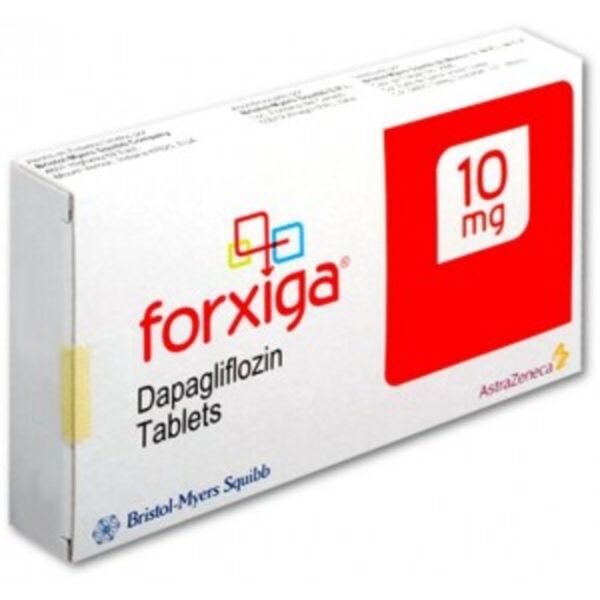Synjardy Tablets – Empagliflozin Metformin Tablets, 56 Tablets
Synjardy Tablets is available in 4 strengths
Synjardy Tablets – Empagliflozin Metformin Tablets are available in 4 strengths:
- Synjardy 12.5mg/1000mg Tablets – Empagliflozin 12.5mg Metformin 1000mg Tablets
- Synjardy 12.5mg/850mg Tablets – Empagliflozin 12.5mg Metformin 850mg Tablets
- Synjardy 5mg/1000mg Tablets – Empagliflozin 5mg Metformin 1000mg Tablets
- Synjardy 5mg/850mg Tablets – Empagliflozin 5mg Metformin 850mg Tablets
£56.20
CompareCompare- Synjardy 12.5mg/1000mg Tablets - Empagliflozin 12.5mg Metformin 1000mg Tablets
- Synjardy 12.5mg/850mg Tablets - Empagliflozin 12.5mg Metformin 850mg Tablets
- Synjardy 5mg/1000mg Tablets - Empagliflozin 5mg Metformin 1000mg Tablets
- Synjardy 5mg/850mg Tablets - Empagliflozin 5mg Metformin 850mg Tablets
- Description
- Additional Information
- Brand
- How To Use
- Product Details
- Side Effects
- Ingredients
- How to Store
- Patient Information leaflet
- Reviews (0)
- Questions & Answers
Synjardy Tablets – Empagliflozin Metformin Tablets, 56 Tablets
Synjardy Tablets – Empowering Your Diabetes Management
Are you searching for a reliable way to manage your type 2 diabetes? Look no further than Synjardy Tablets – Empagliflozin Metformin Tablets. Our innovative formula combines two active substances, empagliflozin and metformin, providing comprehensive support in controlling blood sugar levels effectively. With our advanced technology we aim at delivering results that matter most to patients like yourself who are living with this condition every day. Join us today!
Understanding Synjardy
Synjardy’s star player is none other than empagliflozin – a member of the renowned sodium glucose co transporter 2 (SGLT2) inhibitors family. This remarkable medication works by blocking SGLT2 proteins within your kidneys and facilitating the elimination of excess blood sugar through urine excretion. Alongside this mechanism, metformin takes action against glucose production within liver cells to further reduce levels of sugar present in circulation. Together these two components create an unbeatable team that helps regulate blood sugar levels while giving you back control over your health outcomes. With Synjardy on board as part of your treatment plan for diabetes management or prevention- success is within reach!
Beyond Blood Sugar Control: The Importance of Managing Diabetes
Synjardy is more than just a tool for managing blood sugar levels – it’s an all-encompassing solution that also helps prevent heart disease. By addressing the intricacies of glucose metabolism in your body Synjardy stands as a steadfast guardian against potential medical complications associated with type 2 diabetes. This comprehensive approach ensures you have peace of mind knowing that you are doing everything possible to protect yourself from future health problems. Don’t settle for anything less – choose Synjardy today!
Usage:
Synjardy Tablets offer a vital lifeline for adults (18 years and older) who continue to struggle with managing their type 2 diabetes despite taking metformin or other medications. This versatile companion works effectively alongside various treatments including insulin injections as well as oral drugs. With Synjardys flexibility it becomes an essential tool that can be incorporated into any treatment plan seamlessly. Don’t hesitate – try out this game changing solution today!
Simplify Your Routine
Streamline your medication routine with Synjardy Tablets – a single solution that replaces multiple empagliflozin and metformin tablets. This simplification ensures accurate dosing while minimizing the risk of overdose or confusion between different pills. Say goodbye to hassle and hello to convenience!
Type 2 Diabetes – What You Need To Know
Type 2 diabetes is a complex condition that arises from both genetic and lifestyle factors. When insulin production or utilization falters within the body it leads to elevated blood glucose levels which can pave way for serious health challenges such as heart disease, kidney issues, and impaired vision among others. Synjardy Tablets are here to empower individuals in their fight against these potential complications by providing them with effective treatment options. With this medication at hand you have an opportunity to take control of your health and live life on your terms without fearing any future medical setbacks due to Type 2 Diabetes.
Strength Variants:
We recognize that every individual has their own set of requirements. That’s why Synjardy Tablets – Empagliflozin Metformin Tablets come in four different strengths to cater to diverse needs.
Synjardy Tablets – Empagliflozin 12.5mg Metformin 1000mg
Synjardy Tablets – Empagliflozin 12.5mg Metformin 850mg
Synjardy Tablets – Empagliflozin 5mg Metformin 1000mg
Synjardy Tablets – Empagliflozin 5mg Metformin 850mg
Synjardy – Choose Empowerment
Don’t let type 2 diabetes control your life any longer. Take back the reins of your health journey with Synjardy Tablets – Empagliflozin Metformin Tablets. By lowering blood sugar levels preventing complications and regaining control over well-being you can embrace a brighter future filled with good health. Partner up with Synjardy today!
Remember that following your doctors, pharmacists or nurses’ advice on dietary changes and medication usage is essential for achieving optimal results. Don’t neglect this important aspect of treatment!
Synjardy Tablets Reviews
After using Synjardy Tablets, it’s helpful to let others know about your experience. Reviews of an item help other users know that medicines received have helped the condition it is claimed for, how well the treatment worked or any issues to be aware of. We invite our users to leave a review of both their treatment and of the service provided. Click on the reviews tab to see if there has been feedback on this item.
What is the price of Synjardy Tablets?
The price of Synjardy Tablets is £56.20
Where can you buy Synjardy Tablets?
You can buy Synjardy Tablets at Dock Pharmacy Essex UK, UK Online Pharmacy.
Can you buy Synjardy Tablets Over the counter?
Synjardy Tablets is not available to buy over the counter. You need a prescription to buy Synjardy Tablets
| Strength | 12.5mg/1000mg Tablets, 5mg/1000mg Tablets, 5mg/850mg Tablets, 12.5mg/850mg |
|---|---|
Brand
SYNJARDY
How To Use
How to take Synjardy
Always take this medicine exactly as your doctor has told you. Check with your doctor or pharmacist if you are not sure.
How much to take The dose of Synjardy varies depending on your condition and the doses of diabetes medicines you currently take.
Your doctor will adjust your dose as necessary and tell you exactly which strength of the medicine to take. The recommended dose is one tablet twice a day.
Your doctor will normally start Synjardy treatment by prescribing the strength of tablet that supplies the same dose of metformin you are already taking (850 mg or 1,000 mg twice a day), and the lowest dose of empagliflozin (5 mg twice a day).
If you are already taking both medicines separately, your doctor will start treatment with tablets of Synjardy that will supply the same amount of both. If you have reduced kidney function, your doctor may prescribe a lower dose or decide to use an alternative medicine.
Taking this medicine
- Swallow the tablet whole with water.
- Take the tablets with meals to lower your chance of an upset stomach.
- Take the tablet twice daily by mouth
Product Details
What you need to know before you take Synjardy
Do not take Synjardy • if you are allergic to empagliflozin, metformin or any of the other ingredients of this medicine (listed in section 6); • if you have uncontrolled diabetes, with, for example, severe hyperglycaemia (very high blood glucose), nausea, vomiting, diarrhoea, rapid weight loss, lactic acidosis (see ‘Risk of lactic acidosis’ below) or ketoacidosis. Ketoacidosis is a condition in which substances called ‘ketone bodies’ accumulate in the blood and which can lead to diabetic pre-coma. Symptoms include stomach pain, fast and deep breathing, sleepiness or your breath developing an unusual fruity smell; • if you have had a diabetic pre-coma; • if you have serious kidney problems. Your doctor may limit your daily dose or ask you to take a different medicine (see also section 3, ‘How to take Synjardy’). • if you have a severe infection such as an infection affecting your lung or bronchial system or your kidney. Severe infections may lead to kidney problems, which can put you at risk for lactic acidosis (see ‘Warnings and precautions’); • if you have lost a lot of water from your body (dehydration), e.g. due to long-lasting or severe diarrhoea, or if you have vomited several times in a row. Dehydration may lead to kidney problems, which can put you at risk for lactic acidosis (see ‘Warnings and precautions’); • if you are treated for acute heart failure or have recently had a heart attack, have severe problems with your circulation (such as shock) or have breathing difficulties. This may lead to a lack in oxygen supply to tissue which can put you at risk for lactic acidosis (see section ‘Warnings and precautions’); • if you have problems with your liver; • if you drink large amounts of alcohol, either every day or only from time to time (see section “Synjardy with alcohol”). Warnings and precautions Risk of lactic acidosis Synjardy may cause a very rare, but very serious side effect called lactic acidosis, particularly if your kidneys are not working properly. The risk of developing lactic acidosis is also increased with uncontrolled diabetes, serious infections, prolonged fasting or alcohol intake, dehydration (see further information below), liver problems and any medical conditions in which a part of the body has a reduced supply of oxygen (such as acute severe heart diseases). If any of the above apply to you, talk to your doctor for further instructions. Stop taking Synjardy for a short time if you have a condition that may be associated with dehydration (significant loss of body fluids) such as severe vomiting, diarrhoea, fever, exposure to heat or if you drink less fluid than normal. Talk to your doctor for further instructions. Stop taking Synjardy and contact a doctor or the nearest hospital immediately if you experience some of the symptoms of lactic acidosis, as this condition may lead to coma. Symptoms of lactic acidosis include: • vomiting • stomach ache (abdominal pain) • muscle cramps • a general feeling of not being well with severe tiredness • difficulty in breathing • reduced body temperature and heartbeat Lactic acidosis is a medical emergency and must be treated in a hospital. Talk to your doctor, pharmacist or nurse before taking this medicine, and during treatment: • if you experience rapid weight loss, feeling sick or being sick, stomach pain, excessive thirst, fast and deep breathing, confusion, unusual sleepiness or tiredness, a sweet smell to your breath, a sweet or metallic taste in your mouth, or a different odour to your urine or sweat, contact a doctor or the nearest hospital straight away. These symptoms could be a sign of “diabetic ketoacidosis” – a rare, but serious, sometimes life-threatening problem you can get with diabetes because of increased levels of “ketone bodies” in your urine or blood, seen in tests. The risk of developing diabetic ketoacidosis may be increased with prolonged fasting, excessive alcohol consumption, dehydration, sudden reductions in insulin dose, or a higher need of insulin due to major surgery or serious illness; • if you have “type 1 diabetes” – this type usually starts when you are young and your body does not produce any insulin. Synjardy should not be used to treat patients with type 1 diabetes; • might be at risk of dehydration, for example: o if you are being sick, have diarrhoea or fever, or if you are not able to eat or drink o if you are taking medicines that increase urine production [diuretics] or lower blood pressure o if you are over 75 years old Possible signs are listed in section 4 under ‘dehydration’. Your doctor may ask you to stop taking Synjardy until you recover to prevent loss of too much body fluid. Ask about ways to prevent dehydration. • if you are 85 years old or older as you should not start taking Synjardy due to limited therapeutic experience; • if you have a serious infection of the kidney or the urinary tract with fever. Your doctor may ask you to stop taking Synjardy until you have recovered; • if you need to undergo an examination with iodination contrast agents (such as X-ray or scan). More information is given below in “Other medicines and Synjardy”. Talk to your doctor immediately if you develop a combination of symptoms of pain, tenderness, redness, or swelling of the genitals or the area between the genitals and the anus with fever or feeling generally unwell. These symptoms could be a sign of a rare but serious or even life-threatening infection, called necrotising fasciitis of the perineum or Fournier’s gangrene which destroys the tissue under the skin. Fournier’s gangrene has to be treated immediately. Surgery If you need to have major surgery you must stop taking Synjardy during and for some time after the procedure. Your doctor will decide when you must stop and when to restart your treatment with Synjardy. Kidney function During treatment with Synjardy, your doctor will check your kidney function at least once a year or more frequently if you are elderly and/or if you have worsening kidney function. Foot care Like for all diabetic patients it is important to check your feet regularly and adhere to any other advice regarding foot care given by your health care professional. Urine glucose Because of how this medicine works, your urine will test positive for sugar while you are taking this medicine. Children and adolescents This medicine is not recommended for use in children and adolescents under 18 years, because it has not been studied in these patients. Other medicines and Synjardy If you need to have an injection of a contrast medium that contains iodine into your bloodstream, for example in the context of an X-ray or scan, you must stop taking Synjardy before or at the time of the injection. Your doctor will decide when you must stop and when to restart your treatment with Synjardy. Tell your doctor if you are taking, have recently taken or might take any other medicines. You may need more frequent blood glucose and kidney function tests, or your doctor may need to adjust the dosage of Synjardy. It is especially important to mention the following: • medicines which increase urine production (diuretics), as Synjardy may increase the risk of losing too much fluid. Your doctor may ask you to stop taking Synjardy. Possible signs of losing too much fluid from your body are listed in section 4. • other medicines that lower the amount of sugar in your blood such as insulin or a “sulphonylurea” medicine. Your doctor may want to lower the dose of these other medicines, to prevent your blood sugar levels from getting too low (hypoglycaemia). • medicines that may change the amount of metformin in your blood, especially if you have reduced kidney function (such as verapamil, rifampicin, cimetidine, dolutegravir, ranolazine, trimethoprime, vandetanib, isavuconazole, crizotinib, olaparib). • bronchodilators (beta-2 agonists) which are used to treat asthma. • corticosteroids (given by mouth, as an injection, or inhaled), which are used to treat inflammation in diseases like asthma and arthritis. • medicines used to treat pain and inflammation (NSAID and COX-2-inhibitors, such as ibuprofen and celecoxib). • certain medicines for the treatment of high blood pressure (ACE inhibitors and angiotensin II receptor antagonists). • medicines that contain alcohol (see section ‘Synjardy with alcohol’). • iodinated contrast agents (medicines used during an X-ray, see section ‘Warnings and precautions’. • if you are taking lithium because Synjardy can lower the amount of lithium in your blood. Synjardy with alcohol Avoid excessive alcohol intake while taking Synjardy since this may increase the risk of lactic acidosis (see section ‘Warnings and precautions’). Pregnancy and breast‑feeding If you are pregnant or breast-feeding, think you may be pregnant or are planning to have a baby, ask your doctor or pharmacist for advice before taking this medicine. Do not take Synjardy if you are pregnant. It is unknown if this medicine is harmful to the unborn child. Metformin passes into human milk in small amounts. It is not known whether empagliflozin passes into human breast milk. Do not take Synjardy if you are breast-feeding. Driving and using machines Synjardy has minor influence on the ability to drive and use machines. Taking this medicine in combination with medicines called sulphonylureas or with insulin can cause blood sugar levels to drop too low (hypoglycaemia), which may cause symptoms such as shaking, sweating and change in vision, and may affect your ability to drive and use machines. Do not drive or use any tools or machines if you feel dizzy while taking Synjardy
Side Effects
Possible side effects
Like all medicines, this medicine can cause side effects, although not everybody gets them. Contact a doctor or the nearest hospital straight away if you have any of the following side effects: Severe allergic reaction, seen with uncommon frequency (may affect up to 1 in 100 people) Possible signs of severe allergic reaction may include: • swelling of the face, lips, mouth, tongue, or throat that may lead to difficulty breathing or swallowing) Lactic acidosis, seen very rarely (may affect up to 1 in 10,000 people) Synjardy may cause a very rare but very serious side effect called lactic acidosis (see section 2). If this happens you must stop taking Synjardy and contact a doctor or the nearest hospital immediately, as lactic acidosis may lead to coma. Diabetic ketoacidosis, seen rarely (may affect up to 1 in 1,000 people) These are the signs of diabetic ketoacidosis (see section 2): • increased levels of “ketone bodies” in your urine or blood • rapid weight loss • feeling sick or being sick • stomach pain • excessive thirst • fast and deep breathing • confusion • unusual sleepiness or tiredness • a sweet smell to your breath, a sweet or metallic taste in your mouth or a different odour to your urine or sweat. This may occur regardless of blood glucose level. Your doctor may decide to temporarily or permanently stop your treatment with Synjardy. Contact your doctor as soon as possible if you notice the following side effects: Low blood sugar (hypoglycaemia), seen very commonly (may affect more than 1 in 10 people) If you take Synjardy with another medicine that can cause low blood sugar, such as a sulfonylurea or insulin, your risk of getting low blood sugar is increased. The signs of low blood sugar may include: • shaking, sweating, feeling very anxious or confused, fast heart beat • excessive hunger, headache Your doctor will tell you how to treat low blood sugar levels and what to do if you get any of the signs above. If you have symptoms of low blood sugar, eat glucose tablets, a high sugar snack or drink fruit juice. Measure your blood sugar if possible and rest. Urinary tract infection, seen commonly (may affect up to 1 in 10 people) The signs of urinary tract infection are: • burning sensation when passing urine • urine that appears cloudy • pain in the pelvis, or mid-back pain (when kidneys are infected) An urge to pass urine or more frequent urination may be due to the way Synjardy works, but they can also be signs of urinary tract infection. If you note an increase in such symptoms, you should also contact your doctor. Dehydration, seen uncommonly (may affect up to 1 in 100 people) The signs of dehydration are not specific, but may include: • unusual thirst • lightheadedness or dizziness upon standing • fainting or loss of consciousness Other side effects while taking Synjardy: Very common • feeling sick (nausea), vomiting • diarrhoea or stomach ache • loss of appetite Common • genital yeast infection (thrush) • passing more urine than usual or needing to pass urine more often • itching • rash or red skin – this may be itchy and include raised bumps, oozing fluid or blisters • changes to the way things taste • thirst • blood tests may show an increase in blood fat (cholesterol) levels in your blood • constipation • decreased or low vitamin B12 levels in the blood (symptoms may include extreme tiredness (fatigue), a sore and red tongue (glossitis), pins and needles (paraesthesia) or pale or yellow skin). Your doctor may arrange some tests to find out the cause of your symptoms because some of these may also be caused by diabetes or due to other unrelated health problems. Uncommon • hives • straining or pain when emptying the bladder • blood tests may show a decrease in kidney function (creatinine or urea) • blood tests may show increases in the amount of red blood cells in your blood (haematocrit) Rare • necrotising fasciitis of the perineum or Fournier’s gangrene, a serious soft tissue infection of the genitals or the area between the genitals and the anus Very rare • abnormalities in liver function tests, inflammation of the liver (hepatitis) • redness of the skin (erythema) • inflammation of the kidneys (tubulointerstitial nephritis) Reporting of side effects If you get any side effects, talk to your doctor, pharmacist or nurse. This includes any possible side effects not listed in this leaflet. You can also report side effects directly (see details below). By reporting side effects you can help provide more information on the safety of this medicine. Yellow Card Scheme Website: www.mhra.gov.uk/yellowcard or search fo
Ingredients
What Synjardy contains
The active substances are empagliflozin and metformin.
Each Synjardy 5 mg/850 mg film-coated tablet (tablet) contains 5 mg empagliflozin and 850 mg metformin hydrochloride.
Each Synjardy 5 mg/1,000 mg film-coated tablet (tablet) contains 5 mg empagliflozin and 1,000 mg metformin hydrochloride.
Each Synjardy 12.5 mg/850 mg film-coated tablet (tablet) contains 12.5 mg empagliflozin and 850 mg metformin hydrochloride.
Each Synjardy 12.5 mg/1,000 mg film-coated tablet (tablet) contains 12.5 mg empagliflozin and 1,000 mg metformin hydrochloride
The other ingredient(s) are: –
Tablet core: maize starch, copovidone, colloidal anhydrous silica, magnesium stearate. – Film coating: hypromellose, macrogol 400, titanium dioxide (E171), talc. Synjardy 5 mg/850 mg and Synjardy 5 mg/1,000 mg tablets also contain iron oxide yellow (E172). Synjardy 12.5 mg/850 mg and Synjardy 12.5 mg/1,000 mg tablets also contain iron oxide black (E172) and iron oxide red (E172).
How to Store
How to store Synjardy
Keep this medicine out of the sight and reach of children. Do not use this medicine after the expiry date which is stated on the blister and the carton after ‘EXP’. The expiry date refers to the last day of that month. This medicine does not require any special storage conditions. Do not use this medicine if you notice that the packaging is damaged or shows signs of tampering. Do not throw away any medicines via wastewater or household waste. Ask your pharmacist how to throw away medicines you no longer use. These measures will help protect the environment.
Patient Information leaflet
Click here for the Patient Information leaflet
Please read before using the product
Only logged in customers who have purchased this product may leave a review.
Questions and answers of the customers
There are no questions yet, be the first to ask something for this product.
You Might Also Like
Original price was: £51.50.£47.90Current price is: £47.90.
Original price was: £51.50.£47.90Current price is: £47.90.
- Availability: in stock
Trajenta is used for ‘type 2 diabetes in adults if the disease cannot be adequately controlled with one oral anti-diabetic medicine (metformin or sulphonylureas) or diet and exercise alone
Learn More£49.89
- Availability: in stock
Strength: 0.5mg Pre-Filled Pen
Learn More£157.50
- Availability: in stock
Original price was: £54.89.£51.45Current price is: £51.45.
Original price was: £54.89.£51.45Current price is: £51.45.
- Availability: in stock
Other Products From This Seller
Original price was: £31.00.£10.95Current price is: £10.95.
Chopard Wish Eau de Parfum 30ml Sweet and Oriental Fragrance for Women Indulge in elegance with Chopard Wish Eau de Parfum, 30ml, a sweet and oriental fragrance for women that exudes sophistication and charm. This luxurious scent by Chopard is inspired by the allure of wishes and dreams, blending warm and sensual notes for a […]
Learn MoreOriginal price was: £31.00.£10.95Current price is: £10.95.
- Availability: in stock
Original price was: £84.00.£26.95Current price is: £26.95.
Vera Wang Lovestruck Eau de Parfum 100ml Romantic Floral and Feminine Fragrance Celebrate romance and femininity with Vera Wang Lovestruck Eau de Parfum, 100ml, a romantic floral fragrance for women inspired by love at first sight. This enchanting scent captures the essence of passion and charm with a blend of delicate florals and sweet fruity […]
Learn MoreOriginal price was: £84.00.£26.95Current price is: £26.95.
- Availability: in stock
Original price was: £25.00.£9.95Current price is: £9.95.
Gloria Vanderbilt Vanderbilt EDT Spray, 100ml Timeless Floral Elegance Embrace timeless elegance with Gloria Vanderbilt Vanderbilt Eau De Toilette Spray, 100ml, a sophisticated floral fragrance for women that captures grace, femininity, and charm. Designed for confident and classic women, this iconic scent by Gloria Vanderbilt combines delicate floral notes with warm undertones for a long-lasting […]
Learn MoreOriginal price was: £25.00.£9.95Current price is: £9.95.
- Availability: in stock
Original price was: £34.00.£15.95Current price is: £15.95.
Elizabeth Arden Splendor Eau De Parfum, 125 ml Sophisticated Floral Fragrance Indulge in timeless elegance with Elizabeth Arden Splendor Eau De Parfum, 125ml, a sophisticated floral fragrance for women that exudes grace and charm. Inspired by moments of pure splendor, this iconic scent by Elizabeth Arden combines floral and woody notes for a captivating and […]
Learn MoreOriginal price was: £34.00.£15.95Current price is: £15.95.
- Availability: in stock
Original price was: £44.00.£19.95Current price is: £19.95.
Elizabeth Arden Red Door Eau De Toilette Spray 50ml Timeless Floral Elegance Step into timeless elegance with Elizabeth Arden Red Door Eau De Toilette Spray, 50ml, a classic floral fragrance for women that has become an icon of sophistication. Inspired by the legendary Red Door Spa, this luxurious scent captures the essence of femininity with […]
Learn MoreOriginal price was: £44.00.£19.95Current price is: £19.95.
- Availability: in stock
Original price was: £55.00.£19.95Current price is: £19.95.
Estee Lauder Pleasures EDP 30ml Fresh and Floral Fragrance for Women Experience the timeless elegance of Estee Lauder Pleasures Eau de Parfum, 30ml, a fresh and floral fragrance for women that captures the beauty of life’s simplest pleasures. This classic scent by Estee Lauder is designed for modern, sophisticated women who appreciate light, airy fragrances. […]
Learn MoreOriginal price was: £55.00.£19.95Current price is: £19.95.
- Availability: in stock
Original price was: £34.99.£19.95Current price is: £19.95.
Sarah Jessica Parker Lovely You Eau de Parfum Spray 100ml Sophisticated Floral and Musky Fragrance Step into timeless elegance with Sarah Jessica Parker Lovely You Eau de Parfum Spray, 100ml, a floral and musky fragrance for women that embodies sophistication and modernity. Created by Sarah Jessica Parker, this iconic scent celebrates femininity with a delicate […]
Learn MoreOriginal price was: £34.99.£19.95Current price is: £19.95.
- Availability: in stock
Original price was: £47.00.£29.95Current price is: £29.95.
Kenzo Flower Eau De Toilette Spray 30ml Fresh and Floral Fragrance for Women Experience the delicate beauty of nature with Kenzo Flower Eau De Toilette Spray, 30ml, a fresh and floral fragrance for women inspired by the elegance of the red poppy. This iconic scent combines floral and powdery notes to create a delicate and […]
Learn MoreOriginal price was: £47.00.£29.95Current price is: £29.95.
- Availability: in stock
Original price was: £47.00.£29.95Current price is: £29.95.
Jimmy Choo Eau de Parfum 40ml Sweet and Floral Fragrance for Women Step into a world of luxury and confidence with Jimmy Choo Eau de Parfum, 40ml, a sweet and floral fragrance for women that embodies modern glamour. Designed for women who exude confidence and style, this Jimmy Choo perfume for women blends fruity and […]
Learn MoreOriginal price was: £47.00.£29.95Current price is: £29.95.
- Availability: in stock
Original price was: £52.00.£23.95Current price is: £23.95.
Issey Miyake L’Eau d’Issey Pure Nectar Eau de Parfum Spray, 30ml Floral and Aquatic Elegance Discover the purity of nature with Issey Miyake L’Eau d’Issey Pure Nectar Eau de Parfum Spray, 30ml, a floral and aquatic fragrance for women that encapsulates elegance and sophistication. This Issey Miyake perfume for women combines fresh and delicate notes […]
Learn MoreOriginal price was: £52.00.£23.95Current price is: £23.95.
- Availability: in stock






















Reviews
There are no reviews yet